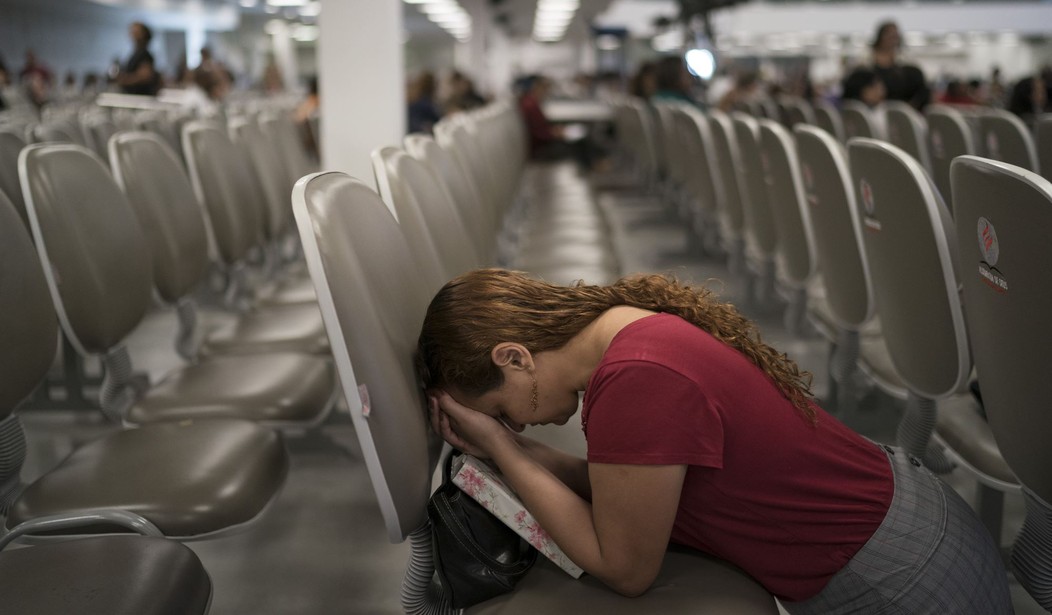In a hypersexualized world, where reality dating shows revolve around sex appeal and dating drama, Netflix’s new show, Love is Blind, has refreshingly changed the focus of relationships to the importance of emotional connection before physical. In doing so, an uncomfortable truth was shown: men are using abortion as a means to escape responsibility, and abortion is hurting women in the process.
Tearfully, one of the contestants named Amber shared her personal experience with abortion. After disclosing an unexpected pregnancy to a previous boyfriend, she thought to be her “other half,” who in turn went into “problem-solving mode” asking, “How are we going to fix this?”
That reaction, she explained, was the force behind her ultimate decision, which resulted in being “the hardest thing I’ve ever gone through in my entire life” and “not exactly something that like I’m proud of.”
The experience led her to struggle with “getting out of bed in the morning,” eating, and even “sleeping.”
Fighting through tears she stated, “I need to know that if a situation like that were to come up, and an unexpected pregnancy happens, I’m not going to be, I won’t be forced to choose. I can’t survive that again. It would destroy me.”
This experience is tragically not unique.
Thus, the question should be asked: In a time of intense emotion, like the discovery of an unexpected pregnancy, why is abortion viewed as a way to “solve a problem” by men?
Recommended
Perhaps it’s because pro-abortion advocates like the Guttmacher Institute suggest that male involvement in abortion decision-making “may not only strengthen couples’ relationships, but also help men become stronger advocates for women in general.”
Or maybe it’s that people are encouraged to “shout their abortion” and celebrities like Michelle Williams claim on stage that if it weren’t for their abortion, they wouldn’t be where they are today.
Having two people to come together in trying times should strengthen a couple’s relationship. However, abortion is the intentional act of ending the life of a human being. Making the decision to end the life of one’s own offspring won’t strengthen relationships and has been shown to increase emotional distress and increase risk for separation or divorce after an abortion has been performed.
It’s in the most trying times of our lives that we grow the most. Abortion is a tool used to escape, avoid responsibility, and leverage decision-making in difficult or unforeseen circumstances, stagnating true potential in relationship growth and distancing men and women from one another.
Nearly three-quarters (73.8%) of women with a history of abortion surveyed in a study published in the Journal of American Physicians and Surgeons experienced at least subtle forms of pressure to terminate their pregnancies. More notably, more than half of the women reported that the perceived pressure was great enough to significantly influence their decision to abort as almost one-third of all the women feared they would lose their partner if they did not terminate their pregnancy.
More notably, women also revealed similar feelings to those felt by Amber. Having reported to be psychologically healthy before their first abortion, the women revealed that afterwards they had symptoms of depression, guilt, shame, regret, self-hatred, feelings of worthlessness, feelings of being unworthy of love, drug or alcohol addiction, low self-esteem, anxiety, and even thoughts or attempts of suicide.
Forcing a woman to choose between ending the life of her child or continuing a relationship, an education, or a career path is everything but empowerment. Why can’t a woman be both a mother and a student? Why can’t she be a mom and a leader in the workforce? In a time where gender equality is often a focus of societal debate, the core principle of equality – equal opportunity – is often overlooked by the masses because we don’t have policies or spokespeople telling women they can do both.
Women deserve better options than taking their child’s life and suffering from the devastating physical, psychological, and emotional consequences. Men should be encouraged to embrace the responsibility of fatherhood and stand beside women during pregnancy. Reproductive and sexual health policies should encourage family growth and empower women, not do the opposite.
Ryan Neuhaus is the Florida Regional Coordinator of Students for Life of America
























Join the conversation as a VIP Member